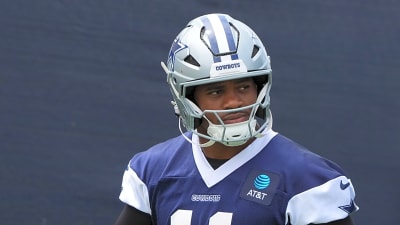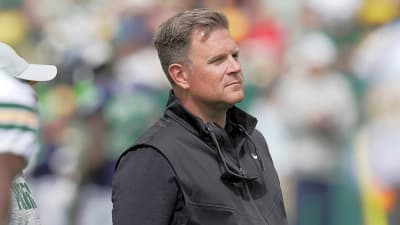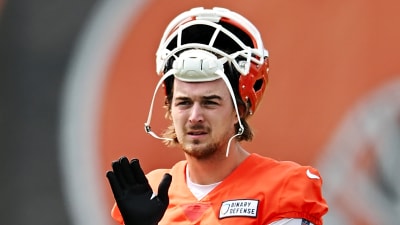Celtic’s latest exit from the Champions League, this time at the hands of Kairat Almaty, has confirmed what many supporters have feared for years, this club’s decline as a European force has been managed, tolerated, even normalised at boardroom level…
Brendan Rodgers must take some of the blame for last night’s exit—210 minutes and penalties against a bang average side should have been enough for any Celtic manager to find a way through at least once. But focusing only on him misses the bigger picture.
Under-prepared Celtic teams in European qualifiers have been a recurring theme for a decade and more, under Ronny Deila, Neil Lennon, Ange Postecoglou and Brendan Rodgers. Yes, managers make mistakes and deserve criticism, but the golden thread through all of these failures is the boardroom and its playbook.
What works for domestic dominance is wholly inadequate in Europe. For a club that was the first British, the first non-Latin team to win the European Cup, European planning and execution should be a non-negotiable, it shouldn’t be desirable, it should be essential.
Blaming the man in the dugout may be comforting, but it is strategy—not touchline tactics—that has left Celtic trapped in managed decline.
Just last night former Celtic boss Martin O’Neill summed it up perfectly when he said this:
“When I stepped into Celtic, not that I expected to win the European Cup, but that’s what you aspire to. That’s what Celtic football club is built on.”
Dropping into the Europa League might once have been seen as a respectable consolation prize. But when you fail to score a single goal across two games and extra time against a side who, had they qualified for the Europa League instead of the Champions League, would still have been the lowest-ranked team in the entire competition. The alarm bells should be deafening. Instead, silence.
And for those who think this is just about the Champions League, a harsh reminder: the last player to score a winning goal for Celtic in European knockout football (excluding qualifiers) will turn 52 this year.
Entire generations of supporters have grown up without ever seeing their club achieve anything beyond the group stages. That’s not a quirk of the draw, or bad luck. That’s structural failure.
The roots of this decline can be traced back to the early 2000s. When Martin O’Neill warned supporters about “life in the slow lane” following Peter Lawwell’s appointment, it sounded dramatic. In hindsight, it was prophetic.
Lawwell did what he was hired to do: put the finances in order, that was his super-strength. But the cost of that balance-sheet stability was a gradual downsizing of ambition, that was his kryptonite. European history was mortgaged away for corporate caution. His strength was cost control; his weakness was vision.
And yet, despite stepping down as CEO in 2021, he is back as chairman today, while the current chief executive continues to operate by the same playbook handed down by his former boss. The manual hasn’t changed: risk nothing, spend cautiously, and hope domestic dominance keeps the fans quiet.
The result? European and recruitment paralysis. This summer has been the clearest example yet: indecision and half-measures in the transfer market left the team short, and it played out brutally over two legs against Kairat. Domestic football may paper over the cracks for a while, but it is only a matter of time before these same failings spill into the Scottish Premiership.
Celtic’s financial advantage over every other Scottish club remains enormous. Yet the waste is staggering. Money is routinely squandered on poor recruitment, scattergun transfers, and wages for too many squad filler players who contribute next to nothing.
Meanwhile, others in Scotland are modernising. Hearts have Tony Bloom, who sees player trading as a route to growth. Hibs have the backing of Black Knight, who are thinking strategically about long-term structures. Across the city, even theRangers have been more nimble at times in recruitment. The Edinburgh clubs have much smaller budgets, but they are run by people with fresher ideas, sharper methods, and a willingness to embrace modern football practices.
Celtic, by contrast, and it has become a trope, continue to operate like an analogue club in a digital age—parochial, cautious, arrogant, insular. The board’s guiding ambition is not to grow Celtic into a European force again, but simply to finish one point ahead of theRangers, then sell the t-shirt.
This stagnation is not accidental—it flows from the very top. Dermot Desmond, the club’s largest individual shareholder, once declared in 2010:
“If a million people told me to do something out of a million and one, and I was the one and I didn’t feel that something was right, then I would take my own counsel. And they can shout, and they can exhort all they like.”
Is that strong leadership? Or does it simply result in a culture of nodding yes-men? Where does the challenge come from that expands strategy beyond the view of just one man?
Desmond may hold only 35% of shares, but thanks to dormant stock and alliances elsewhere his effective control is near absolute. And if the guiding principle at the very top is to block out dissent and ignore alternative visions, is it any wonder Celtic stagnate?
This same culture trickles down into recruitment—not just of players, but of staff. The question must be asked: does Celtic employ the best of the best in every position they can afford? Or is there a comfort in surrounding the club with “Celtic men”—figures who understand the institution, yes, but who also fit neatly into a structure that rewards loyalty and pliancy above fresh ideas?
There is something commendable about having people who “know the club.” But are they here because they are genuinely the sharpest operators available in scouting, analytics, coaching, and executive management? Or are they here because they won’t rock the boat, won’t challenge the entrenched worldview, and will quietly validate the notion that the people in charge are already doing a great job?
In modern football, sentimentality cannot substitute for expertise. If Celtic continue to prize alignment over innovation, the result will always be stagnation.
My biggest fear is not just this season, nor even the challenge from Ibrox. The real threat lies a couple of years down the line. Hearts and Hibs are positioning themselves as modern football businesses, run by people who understand player trading, analytics, and strategic recruitment. If Celtic continue to waste resources and stumble through transfer windows, that gap will narrow. Not immediately, but within two or three seasons.
The board’s arrogance in Europe has already cost us prestige and multiple tens of millions in revenue. If that same arrogance is allowed to seep into domestic football, the consequences could be far greater.
Celtic supporters have every right to demand better. They invest their money, their loyalty, their identity in this club. What they receive in return is a boardroom stuck in the past, content with mediocrity so long as the balance sheet is tidy.
Professional people, running Celtic in a professional manner. Competence in recruitment. Ambition in Europe. Transparency with supporters. That is what is needed. Not luck. Not nostalgia. Management—real management.
Until then, Celtic will remain exactly what the critics say: a giant club acting like a small one. Or, to put it more brutally—are we the smallest big club in Europe, or the biggest small club?
More must-reads:
- Nick Saban names one thing that is 'killing' Ohio State
- Jerry Jones again proves he shouldn't be making decisions for Cowboys
- The 'NFL QB season rushing leaders' quiz
Breaking News
Trending News
Customize Your Newsletter
 +
+
Get the latest news and rumors, customized to your favorite sports and teams. Emailed daily. Always free!








